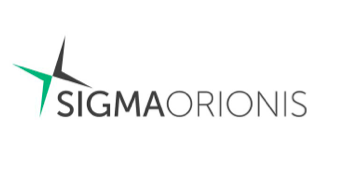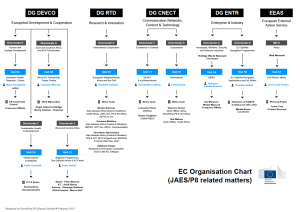2013
12
2013 Africa-EU Cooperation Forum on ICT – For immediate release
For immediate release
Dec. 12, 2013
The ‘2013 Africa-EU Cooperation Forum on ICT’ took place at the African Union Conference Centre in Addis Ababa, Ethiopia, on December 2-3 in the framework of the African Union Commission (AUC) Internet/ICT Week that was held on December 2-6 in Addis Ababa. This week was part of a series of events organised to celebrate the 50th anniversary of the formation of the AUC.
The Forum was attended by about 200 key stakeholders from all over Europe and Africa including European Commission (EC) and AUC officials, institutions, NGOs, national and international companies, SMEs, academia and research institutes.
The Forum featured four session types, namely: plenary, networking, thematic presentations and panel discussions. The plenary sessions highlighted the context of the Africa/EU partnership, the priorities and plans for cooperation in ICT, the need for ICT innovations, the role of the African Regional Economic Communities (RECs), innovation success stories, Futures Thinking and ICT research priorities including funding opportunities through the EU Horizon 2020 Programme. Presentation sessions were organised around the main conference themes which addressed the role of ICT in Agriculture, Learning, Government Services, Environmental Sustainability & Energy, ICT Infrastructures & NRENs, Cybersecurity and Health as well as focusing on how to build Africa/EU Research Collaborative projects, supporting ICT Research Capacities in Africa and examining success stories related to Mobile Applications.
Event background
The ‘2013 Africa-EU Cooperation Forum on ICT’ was the sixth of a series of very successful conferences organised by the EuroAfrica-ICT Initiative under the aegis of the European Commission (EC, DG CONNECT) and the African Union Commission (AUC, Information Society Division) and in the framework of the Joint Africa-EU Strategic Partnership (JAES):
#1: March 25-26, 2009 – Brussels, Belgium
#2: February 4, 2010 – Addis Ababa, Ethiopia
#3: December 7-8, 2010 – Helsinki, Finland
#4: November 14-15, 2011 – Cape Town, South Africa
#5: November 28-29, 2012 – Lisbon, Portugal
Event main outputs
While impossible to summarise two days of active discussions, the following are among the main issues that came under the spotlight during this very successful event:
- The Euro-Africa ICT collaboration under the Joint Africa-EU Strategic Partnership (JAES) has successfully contributed to the improvement of ICT infrastructure in Africa and there is a willingness to strengthen the collaboration even further.
- The EU’s new Horizon 2020 Framework Programme builds on a number of successful, joint projects such as EuroAfrica-P8, eI4Africa, VOICES, iMentors, CAASTNet+, IST-Africa and AfricaConnect. The forthcoming ICT Calls offer opportunities for joint research and innovation with impact on Societal Challenges. There will be a specific call for research & innovation proposals for sub-Saharan Africa during 2014.
- The African Regional Economic Communities (RECs) play a very important role in Africa. In close collaboration with the AUC, they are integrating ICT planning, aligning actions and harmonizing policies.
- African ICT Research Capacity is a fundamental requirement for collaboration and it is essential to promote brain gain in Africa versus brain drain. “It is all about knowledge.” This can be facilitated through collaboration between European and African research institutes, coordination of joint research activities, curriculum development, research capacity building and international collaboration. Development aid is increasingly focusing on capacity building in higher education institutes in response to this challenge.
- Research Infrastructures (RIs) should be a priority focus of bi-regional Africa-EU cooperation as supported by data on the socio-economic impact of RIs. Cooperation in Research and Education Network (NRENs) exploit the interconnection between the European GEANT network and established African regional networks, and the development of an integrated pan-African Research and Education Network. NRENs are now looking at providing additional services beyond just bandwidth – including identity management.
- African entrepreneurship and local innovation is growing steadily through i-Hubs, collaboration spaces and other models while some challenges remain with the establishment of SMEs and micro companies. This requires a critical mass of R&D skills and a capacitated work force. User skills and involvement should be taken into account in the design of applications. Sustainability of tools after an innovation project ends must be ensured. Government involvement is needed for the certification of work or for getting a license after training. Experience should be shared on a larger geographical scale (not just country-specific).
- ICT for Government Services: Both the EU and Africa will benefit from e-Government, e.g. as a way to get more young people to vote and to collect taxes more efficiently. These should be developed through an innovative approach towards collaboration with grassroots and civil society in order to implement citizen-centred digital services that are adapted to local literacy and cultural constraints. E-government success stories of Estonia and Sweden were presented as well as insights on the interaction between social networks and government portals in Senegal. The private sector plays a supporting role in the roll-out of e-government projects.
- ICT for Learning: ICT means development, and ICT for learning and education remains a key factor for African emergence. Recognizing the cultural and political context of each country and the inclusion level of the general public are key to tackling current cultural/political and digital literacy constraints. Other essential components are interoperability frameworks, trust/privacy safeguards and awareness.
- ICT for Agriculture: Better access to information improves business practices and leads to enhanced management and income. ICT training enhances the possibility of gaining community recognition, trust and influence in order to enhance the use of these tools and to develop an ecosystem of partners. Users should pay for what they are using and offering a small charge will be an incentive for people to use ICT tools. It is necessary to account for the socio-economic profile of farmers (single, man/women, family) and to design systems in collaboration with users – e.g. easy to access offline, using low-end phones, providing access points, security and sensitivity of data. Sustainability of services (platforms, training centres) should be ensured after project funding stops.
- ICT for Health: ICT tools for knowledge sharing and training of healthcare providers has made a huge impact and this can be shared with other continents. e-Learning improves education quality, develops the workforce and reduces the cost of education.
- ICT Infrastructure: The establishment of wide-reaching ICT infrastructure remains important for both Europe and Africa. This includes the sharing of best practices on the implementation, sustainability and governance of NRENs and exploring new technologies such as TV White Spaces. Improving broadband infrastructure and delivering affordable, advanced ICT services to all is currently the major challenge for the ICT sector in Africa. There is a need for government involvement in ICT policies and regulations, and in enforcing those while seizing new opportunities and providing public investment. Policy recommendations could be developed in liaison with projects such as eI4Africa and EuroAfrica-P8.
- ICT for Environmental Management & Energy key message: if you cannot measure, then you cannot manage.
- Cybersecurity and Trust: A Computer Emergency Response Team (CERT) per country is an essential component of cybersecurity. This needs to be adapted to the culture of each country. The African Union Regional Centre of Excellence will play an important role in cybersecurity capacity building. Cybersecurity should be a mandatory component of all ICT initiatives.
- Mobile Applications: Regulations and standards for mobile applications need to be in line with global standards, e.g. with payment card industry solutions. All applications must have security built in.
The ‘2013 Africa-EU Cooperation Forum on ICT’ resulted in a general agreement among the participants on the valuable insights that were availed for the ongoing and planned Euro-Africa Programmes for ICTs. It was a great opportunity for delegates to network with key players from the regions, to share experiences with international experts and to build new friendships and partnerships. By the end of the Forum, all left in a positive manner, believing that considerable opportunities for collaboration lie ahead of them through the ongoing partnership and, inter alia, facilitated by the launch of H2020.
Useful links…
- Event page
- Event proceedings
- The full report will be released in January 2014
About the EuroAfrica-ICT/P8 project…
- EuroAfrica-ICT is an EU/FP7 supported action with the aim of enhancing and supporting the development of S&T cooperation on ICT research between Europe and Africa
- Partnership: Sigma Orionis, France (Coordinator) | The Council for Scientific and Industrial Research (CSIR), South Africa (Technical Coordinator for Africa) | VTT, Finland (Technical Coordinator for Europe) | The Ministry of Communications and Information Technology (MCIT), Egypt | Kungliga Tekniska Hoegskolan (KTH), Sweden | The Centre d’Etudes et de Recherches des Télécommunications (CERT), Tunisia | Fundação para a Ciência e a Tecnologia, I.P. (FCT), Portugal | The Ecole Supérieure Multinationale des Télécommunications (ESMT), Senegal | Fraunhofer, Germany | The Stichting International Institute for Communication and Development (IICD), The Netherlands | The Kenya Information and Communication Technology Board (KICTB), Kenya.







